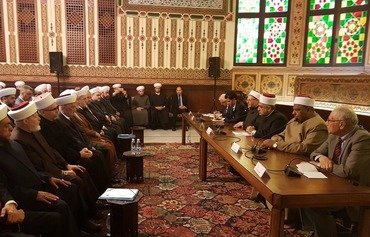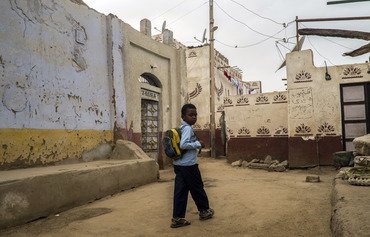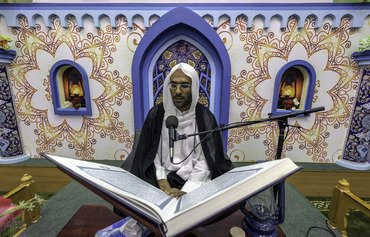While religious education institutions in Lebanon can play a strong role in countering extremist ideology, they must be regulated by the state to ensure they are fostering a culture of religious moderation, academics told Al-Mashareq.
The curricula of religious education institutions must be subject to state oversight to ensure these institutions are not being exploited for political ends or being used as incubators for extremism, they said.
"These institutions have a major role to play in countering extremist ideology and the teaching of moderate Islam," said Mohammad Amin Farchoukh, dean of the Makassed University of Beirut's College of Islamic Studies.
The College of Islamic Studies "follows the path of moderation and openness", he told Al-Mashareq, and adheres to the principles of the Beirut Declaration on Religious Freedoms and al-Azhar's Declaration on Citizenship and Co-existence.
Each of these doctrines call for moderation, he said, and ought to be incorporated into the curricula of all Lebanon's religious education institutions.
The culture of moderation
Farchoukh, who regularly holds dialogue sessions on the role of religious education institutions in confronting radical ideology, said the Makassed University "urges moderation and freedom through its teachings".
"While we adopt moderation in our curricula to confront the challenges of extremism in Islamic thought, there are religious education institutions throughout Lebanon that follow a radical approach," he cautioned.
The teachers and textbooks these institutions use must be monitored to ensure students are being taught the culture of moderation, he said.
Some institutions play a major role in confronting the challenges of radical thought and work to steer their students towards open discourse, said Mohammed al-Nuqari, a lecturer at St. Joseph University's faculty of law.
"On the other hand, there are licensed universities and religious education institutions that graduate students and clerics with an extremist religious education," he told Al-Mashareq.
The state therefore has a great responsibility to review how it grants licenses to such educational institutions, he said.
State regulation is necessary
"Religious institutions, schools and religious education institutions can play a positive and supportive role in containing and curtailing extremism," said Lebanese Centre for Research and Consulting director Hassan al-Qutb.
If these institutions are not subjected to regulation, however, they could become "agents of subversion and destruction", he told Al-Mashareq.
The proliferation of religious institutes and seminaries poses a challenge, he added, as it is difficult to regulate, review or monitor their curricula or the ideology they promote.
There is no official data on the number of such institutes in Lebanon, al-Qutb said, but he estimated that there are hundreds of religious institutes and seminaries throughout Lebanon that provide unmonitored religious education.
"There is no real official and responsible religious authority that can review the curricula and regulate the pace of their teaching and guidance," he noted.
But to ensure religious education institutions are used to foster peace rather than inflame tensions, they "must be regulated", he said, and the licenses of those who do not adhere to the official curricula must be revoked.

![Students at Makassed University's College of Islamic Studies take part in a graduation ceremony. The college's religious education programme 'follows the path of moderation and openness', according to dean Mohammad Amin Farchoukh. [Photo courtesy of Makassed University]](/cnmi_am/images/2018/02/14/11366-Lebanon-Makassed-university-600_384.jpg)






